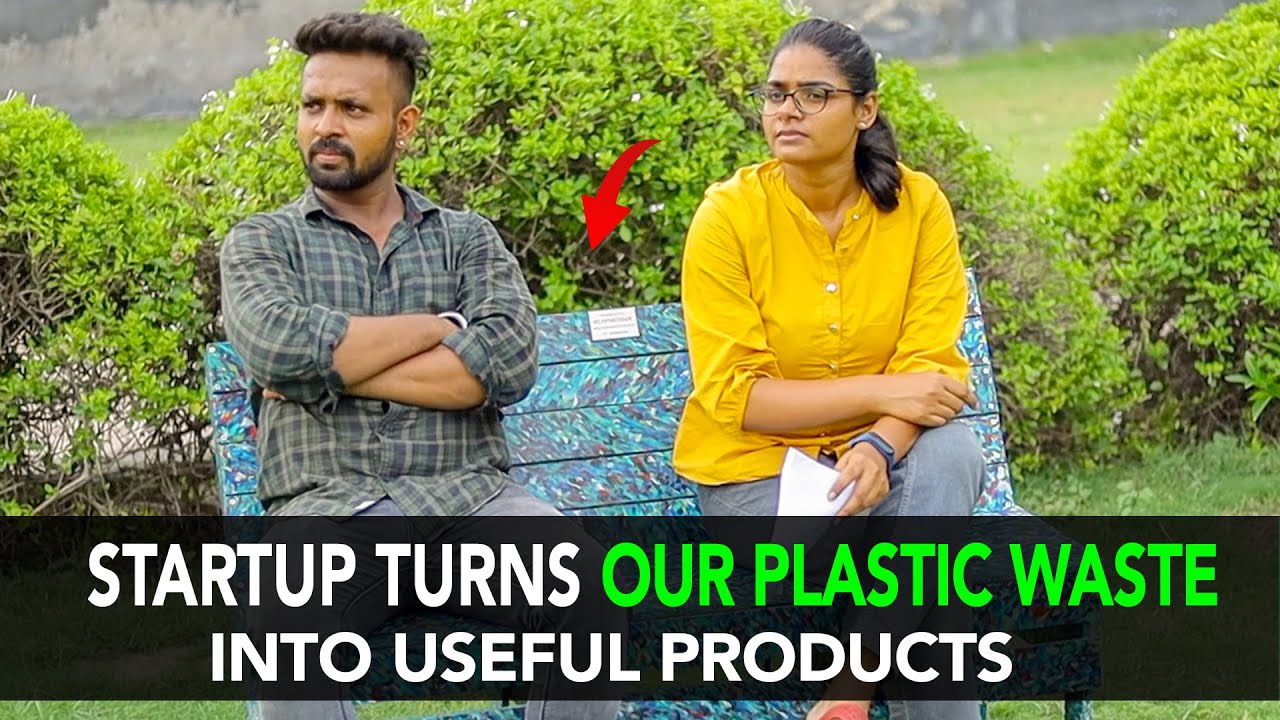Melati Wijsen: A roadmap for young changemakers | TED Countdown
Summary
TLDRAt 12, the speaker co-founded a movement in Bali to combat plastic pollution, evolving from a passionate activist to a full-time changemaker. Despite initial challenges and burnout, they persisted, learning to build a team and engage with politics. Bali's 2019 ban on single-use plastics validated their efforts. The speaker advocates for youth involvement in changemaking, calls for educational systems to reflect real-world issues, and warns against 'youthwashing' by corporations seeking to exploit youth activists for image rather than substantive change.
Takeaways
- 🌍 Started a movement at 12 to combat plastic pollution in Bali, Indonesia.
- 👭 Collaborated with sister Isabel to initiate change in their community.
- 🌱 Initially naive about the process of creating change, but grew into a full-time changemaker.
- 🚫 Faced challenges with being perceived as 'cute' rather than taken seriously.
- 💪 Learned the importance of building a team, gathering evidence, and creating campaigns.
- 🏖️ Organized beach cleanups, collected signatures, and engaged with politicians.
- 🔥 Passion turned into obsession, leading to frustration and burnout at a young age.
- 🎓 Bali banned single-use plastic bags in 2019, a result of persistent activism.
- 📚 Created a learning journey outside of traditional education to achieve goals.
- 👥 Realized the importance of collaboration and navigating relationships with businesses and politicians.
- 🧘♀️ Recognized the need for breaks and self-care in the face of ongoing activism.
- 👶 Youth activism is increasing, with younger individuals taking significant action.
- 🚸 Believes in the necessity of education that reflects real-world issues like climate change and sustainability.
- 🌟 Advocates for mandatory lessons on climate crisis, SDGs, and sustainable innovations in schools.
- 📈 Founded the Circle of Youth within YOUTHTOPIA, a platform for young changemakers to learn and collaborate.
- 💡 Emphasizes the need for role models and real-life examples of youth making a difference.
- 🌱 Warns against 'youthwashing', where companies exploit youth activists for appearances rather than genuine change.
- 🔮 Envisions a future where youth activism leads to significant and lasting change.
Q & A
What was the main issue the speaker aimed to address in Bali?
-The main issue the speaker aimed to address was the growing problem of plastic pollution on the island of Bali, Indonesia.
How did the speaker describe her initial approach to creating change?
-Initially, the speaker was full of passion and excitement, believing she could achieve the change of making Bali plastic-bag-free before the summer ended.
What challenges did the speaker face in her early activism?
-The speaker faced challenges such as being underestimated as 'cute' instead of being taken seriously, and experiencing frustration and burnout due to the slow pace of change.
What strategies did the speaker learn to employ in her activism?
-The speaker learned to build a team, gather evidence, create campaigns, develop a movement, stage beach cleanups, collect signatures, speak in public, and meet politicians.
What was a significant achievement the speaker mentioned in her activism?
-A significant achievement mentioned was the ban on single-use plastic bags in Bali in 2019.
What did the speaker wish she knew earlier in her activism journey?
-The speaker wished she knew how to navigate collaborations with businesses and politicians, and the importance of taking breaks and stepping back for rest and recharge.
What is the speaker's view on the role of education in fostering changemakers?
-The speaker believes that education should reflect real-world issues and that every student should have mandatory lessons about the climate crisis, the 17 SDGs, and sustainable innovations.
What is the Circle of Youth within YOUTHTOPIA that the speaker mentioned?
-The Circle of Youth within YOUTHTOPIA is a network the speaker started for young changemakers to learn from each other.
What is the term the speaker used to describe the misuse of youth activists by companies?
-The term the speaker used is 'youthwashing,' which she describes as companies using youth activists for appearances or to tick off a box without genuine intentions to contribute to climate action.
What advice does the speaker give to companies that are youthwashing?
-The speaker advises companies to involve youth activists in brainstorming meetings, internal workshops, and board meetings, and to consider reverse mentoring sessions.
How does the speaker envision the future of youth activism?
-The speaker envisions a future where a whole generation of youth activists will rise, lead by example, and take action, emphasizing that youth activism is serious about driving change.
Outlines

This section is available to paid users only. Please upgrade to access this part.
Upgrade NowMindmap

This section is available to paid users only. Please upgrade to access this part.
Upgrade NowKeywords

This section is available to paid users only. Please upgrade to access this part.
Upgrade NowHighlights

This section is available to paid users only. Please upgrade to access this part.
Upgrade NowTranscripts

This section is available to paid users only. Please upgrade to access this part.
Upgrade NowBrowse More Related Video

The Sisters Who Fixed Plastic Bags | Anti-Plastic Sisters From Bali | Plastic Problems

S2 KURMER SMA MA XI BAHASA INGGRIS LISTENING BAB 1

Our campaign to ban plastic bags in Bali | Melati and Isabel Wijsen

Bali sisters say 'Bye Bye Plastic Bags'

ENGLISH FOR NSUANTARA KELAS 8 - CHAPTER 4 - UNIT 3 - FACTUAL REPORT

Startup Turns Our Plastic Waste Into Useful Products | Anuj Ramatri - An EcoFreak
5.0 / 5 (0 votes)